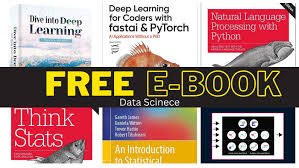Deep Learning Concepts : Part - 2 Study Preparations
Preparing for studying deep learning involves a combination of foundational knowledge, technical skills, and learning resources. Here are some key steps to help you get started:
Solidify Fundamentals: Ensure you have a strong understanding of basic concepts in mathematics, including linear algebra, calculus, and probability. Deep learning heavily relies on these mathematical foundations.
Python Programming: Deep learning frameworks and libraries are predominantly implemented in Python. Familiarize yourself with Python programming concepts, syntax, and libraries such as NumPy and Pandas for data manipulation.
Machine Learning Basics: Familiarize yourself with fundamental machine learning concepts, including supervised and unsupervised learning, evaluation metrics, and model training and evaluation. This knowledge will provide a solid foundation for diving into deep learning.
Neural Networks: Gain an understanding of artificial neural networks, including their structure, activation functions, forward and backward propagation, and gradient descent optimization. This knowledge is crucial for comprehending the inner workings of deep learning models.
Convolutional Neural Networks (CNN): Study CNNs, which are widely used in computer vision tasks. Learn about convolutional layers, pooling operations, and architectures such as VGG, ResNet, and Inception.
Recurrent Neural Networks (RNN): Dive into RNNs and their variants, such as LSTM and GRU. Understand their architecture, working principles, and applications in sequential data analysis, such as natural language processing and time series analysis.
Deep Learning Frameworks: Familiarize yourself with popular deep learning frameworks like TensorFlow and PyTorch. Learn how to build, train, and evaluate deep learning models using these frameworks.
Learning Resources: Identify and utilize high-quality learning resources to guide your studies. These may include online courses, tutorials, textbooks, and research papers. Platforms like Coursera, Udacity, and Fast.ai offer deep learning courses taught by experts.
Hands-on Projects: Apply your knowledge through hands-on projects. Work on small-scale projects to implement and experiment with deep learning models. Platforms like Kaggle offer datasets and challenges to practice your skills and learn from the community.
Stay Updated: Deep learning is a rapidly evolving field. Stay updated with the latest research papers, blogs, and conferences to keep up with advancements and new techniques.
Join Communities: Engage with the deep learning community by participating in forums, online groups, and social media platforms. Collaborate, discuss ideas, and learn from experienced practitioners and researchers.
and it requires consistent practice and dedication. Start with the basics, gradually build your knowledge, and actively seek opportunities to apply what you learn. Keep a curious and persistent mindset, as deep learning continually evolves, and there is always something new to discover.








